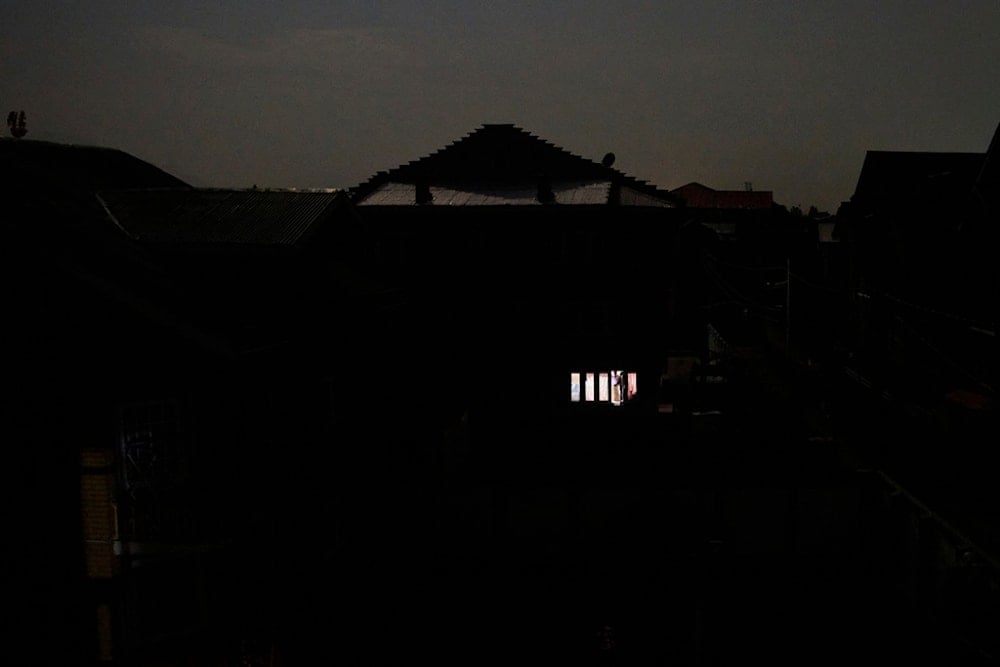Pakistan denies violating ceasefire as tensions flare along border
Pakistan denied Indian claims of violating a newly brokered US-led ceasefire on Saturday, as both sides traded accusations amid renewed drone strikes, deadly blasts in Jammu and Kashmir, and mounting doubts over the truce's viability.
-

A Kashmiri man looks out from the window of his house during a blackout after the residents of the Srinagar reported hearing explosions in Srinagar, Indian controlled Kashmir, Saturday, May 10, 2025 (AP Photo/Dar Yasin)
Pakistani Information Minister Attaullah Tarar rejected accusations on Saturday that Islamabad had breached the newly established ceasefire agreement with India. His statement followed remarks from Indian Foreign Secretary Vikram Misri, who earlier claimed Pakistan had violated the understanding reached between the two nations just hours prior.
"Over the past three hours, there have been repeated violations of the understanding arrived at earlier this evening between the Directors General of Military Operations of India and Pakistan," Misri stated, adding, "This is a breach of the understanding arrived at earlier today. The armed forces are giving an adequate and appropriate response to these violations, and we take very, very serious notice of these violations."
The situation on the ground remained volatile, with Jammu and Kashmir Chief Minister Omar Abdullah confirming reports of powerful blasts in Srinagar, according to Reuters. Eyewitnesses also told the news agency that "drone attacks on a town in Jammu" took place just hours after the ceasefire was declared.
This is no ceasefire. The air defence units in the middle of Srinagar just opened up. pic.twitter.com/HjRh2V3iNW
— Omar Abdullah (@OmarAbdullah) May 10, 2025
Defiant Truce
Amid the escalating accusations, Pakistani Prime Minister Shehbaz Sharif struck a defiant tone, declaring: "Pakistan has every right to give a befitting reply to this act of war imposed by India, and a strong response is indeed being given."
In this context, Pakistani Prime Minister Shehbaz Sharif announced that his country had "defeated the enemy," praising the armed forces for "responding to the Indian aggression with full force and in a highly professional manner."
Sharif further condemned New Delhi's military actions, calling them "an unjustified war," and described India’s conduct as "disgraceful." He also expressed appreciation to the United States for its diplomatic efforts in securing the ceasefire, stating that the agreement was accepted in the interest of peace and stability across the region.
"This agreement," he noted, "marks a new beginning in addressing the issues that have plagued the region and hindered the journey toward peace, prosperity, and stability."
Read more: India-Pakistan waters treaty still frozen despite ceasefire deal
The US-brokered ceasefire, agreed upon earlier in the day, was intended to bring an end to the deadliest escalation between the nuclear-armed neighbors in decades. Nearly 60 civilians on both sides were reported killed during the recent flare-up, which began on April 22 following an attack in Indian-administered Kashmir that left 26 tourists dead. India blamed Pakistan for the assault—a charge Islamabad firmly denies.
The ceasefire agreement was meant to halt hostilities immediately, but the fragile calm has already come under pressure, raising concerns about the durability of the truce between two countries whose history since their 1947 partition has been shaped by conflict and mistrust.

 3 Min Read
3 Min Read








